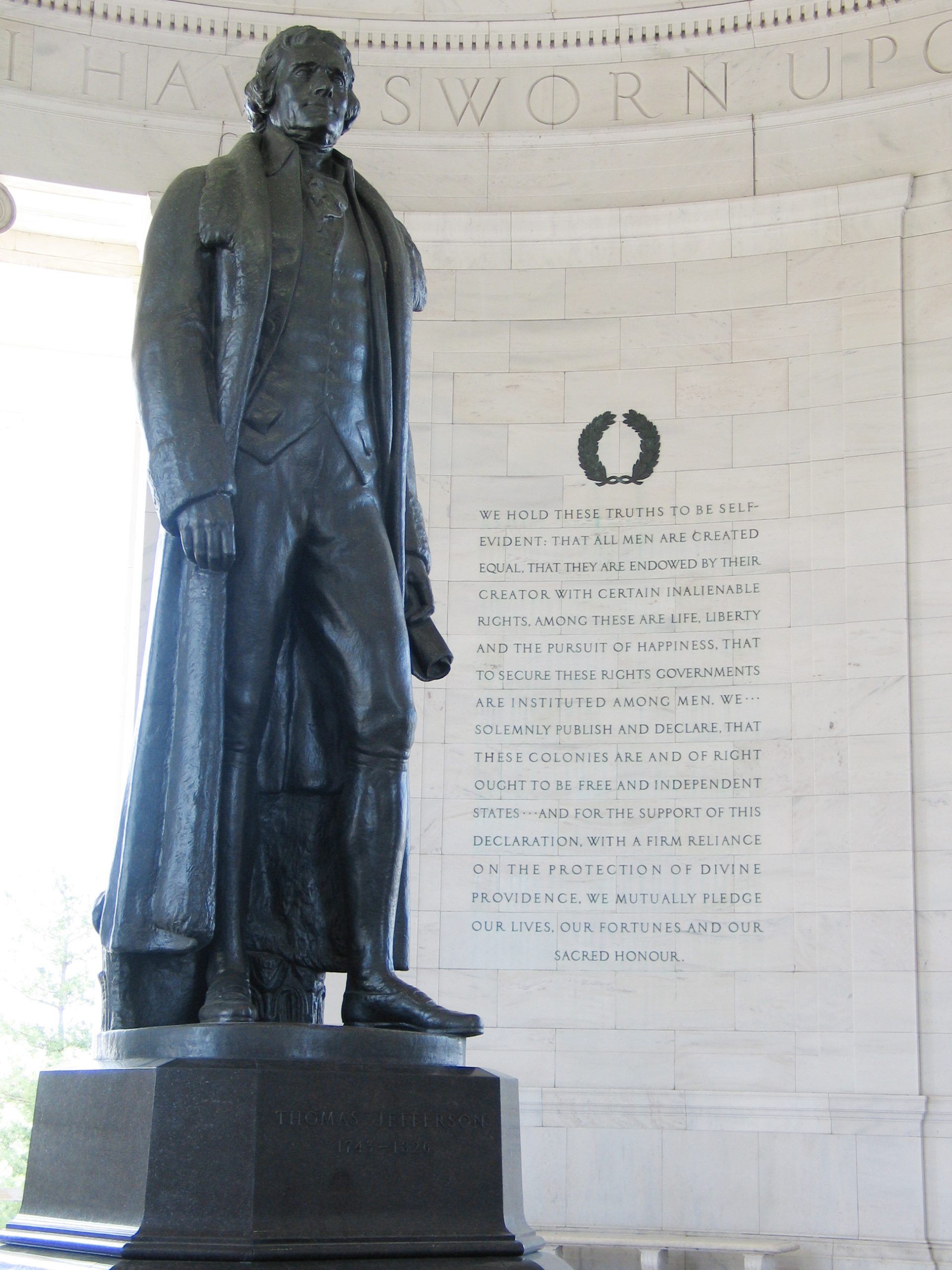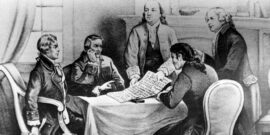Why “Liberalism” Needs Natural Law
Over the past few years, we’re witnessed a resurgence of a long-standing critique of what’s often called “liberalism” by prominent conservative and Christian intellectuals. This goes far beyond arguments which have long preoccupied some traditionalists concerning market economies and their impact upon culture. It’s evident from reading these contemporary critics of liberalism and proponents of forms of what’s called integralism that the market often functions as a proxy for two larger targets. One is the American Founding. The other, by extension, is the type of liberal constitutional order which assumed decisive form in the Anglo-American world from 1688 onwards.
There is, however, an ambiguity marking many of these sallies against liberalism (itself a term that’s invested with often-contradictory meanings). It can be summarized in the following way.
Do today’s anti-liberals believe that the core problem is an ideology of radical autonomy, one that preaches liberation in the name of “tolerance-respect-diversity” while simultaneously shoving unscientific gobbledygook like gender theory down our throats? Or, do they also regard what I’ll call “liberal institutions” as antithetical to the good life? To put it more crudely: are particular structures and commitments such as constitutionalism, rule of law, due process, market economies, legally-recognized and often constitutionally-guaranteed rights, and a strong distinction between the temporal and spiritual realms, essentially reflections of a very destructive creed?
Many anti-liberals would, I suspect, acknowledge the pre-Enlightenment origins of many of these institutions. The economic arrangements which we call capitalism, for example, first manifested themselves in a relatively systematic form in medieval Europe. Once we dispense with Marxist and fellow-travelling mythologies about the origins of the market, the historical record on that point is hard to dispute.
It’s equally difficult, I’d argue, to deny that the roots of modern constitutional orders which seek to organize political life in ways that promote liberty and justice go back further than 1776 and 1688 to the early-modern and late-medieval worlds and even, some believe, to particular Roman and Greek thinkers. There’s also strong evidence to suggest that the idea of natural rights, so associated with the Age of Reason’s approach to politics, existed several centuries before Thomas Hobbes, John Locke or Thomas Jefferson put pen to paper.
If all this is generally true, it’s worth considering whether liberal order can be premised on claims about human nature that don’t presuppose preferential options for utility-maximization or atomistic visions of society. In short, we should explore the possibility of grounding liberal institutions upon markedly non-utilitarian ideas which embody conceptions of freedom closer to that articulated by Aquinas than John Stuart Mill and John Rawls. That requires, however, more attention to something which hasn’t featured strongly thus far in the liberalism-integralism discussion. This concerns the relationship between liberal order and the tradition of natural law in our post-Enlightenment world.
By “natural law,” I don’t mean “natural rights” per se. Indeed, if rights are to be distinguished from what are often no more than rationalizations of what temporary majorities or the powerful just happen to desire, then they must be grounded in a robust account of natural law. And by that, I mean right (“law”) reason (“natural”): the reason possessed by all people that, in principle, allows us to identify what is good and just (rather than simply useful or efficient) for individuals and communities but which also helped give rise to liberal order.
When we examine the character assumed by liberal institutions from the late-seventeenth century onwards, it becomes apparent that a major influence upon their development were various accounts of natural law. Political philosophers such as Paul R. DeHart have illustrated how an exemplar of eighteenth-century liberal order like the United States Constitution presupposes the type of moral underpinnings we find in the writings of ancients like Aristotle and Cicero, medievals such as Aquinas, and more modern supporters of natural law like William Blackstone, Jean-Jacques Burlamaqui, Edward Coke, Hugo Grotius, Richard Hooker, Samuel von Pufendorf, and Emer de Vattel.
A good example of this is the thinker and politician who’s considered emblematic of the Anglo-American tradition of ordered liberty.
Today, Edmund Burke is associated with the conservative emphasis upon the tacit knowledge contained in customs, conventions and traditions, something that goes hand-in-hand with his critique of Enlightenment rationalism. Yet Burke also spoke very positively about freedom, but not the radical autonomy targeted by today’s anti-liberals. As he stated in 1774, “The only liberty that is valuable is a liberty connected with order; that not only exists along with order and virtue, but which cannot exist at all without them. It inheres in good and steady government, as in its substance and vital principle.”
But from whence did Burke see this order arising? On one level, Burke derived it from the inferred knowledge contained in tradition, especially religion. At the same time, as Peter J. Stanlis demonstrated 60 years ago in Edmund Burke and the Natural Law (1958), Burke’s vision of free and ordered societies is heavily informed by natural law reasoning and sources.
In his posthumously published Tracts on the Popery Laws, Burke refers to “the will of Him who gave us our nature, and in giving impressed an invariable law upon it” when explaining why the anti-Catholic penal laws operative in eighteenth-century Britain and Ireland were fundamentally unjust. Nor did Burke hesitate to invoke older traditions of natural law in his criticisms of how the French Revolution’s supporters used the language of rights.
In the realm of economics, Burke grounded his core arguments for free markets firmly upon natural law. We see this most vividly in his Thoughts and Details on Scarcity (1795), but also correspondence with his son Richard in which he spells out the unjust character of laws that drastically restricted the property-rights of Catholics in Ireland. In these and other instances, concerns for utility take a very secondary place. As for the conduct of nation-states, it’s notable that Burke’s justification for ongoing war against the French Revolution involved extensive reference to the Law of Nations: the ius gentium which natural law thinkers ranging from Aquinas to the more modern Vattel considered part of that aspect of positive law immediately derived by deduction from the natural law and universally applicable across national boundaries.
In summary, Burke regarded what some call “liberalism” today as incomprehensible, unworkable and unjust in the absence of widespread commitment to natural law. A similar argument can be made in our own time.
Without natural law foundations, for instance, how can we determine what is and isn’t a right other than appeals to raw power or utility, neither of which can provide a principled case for rights? Or, on what other basis besides natural law can we articulate reasoned accounts of the origin and nature of national sovereignty over and against globalist organizations seeking to impose plastic conceptions of human nature upon entire nations in the name of “tolerance-respect-diversity”? And above all: how can we achieve acceptance of principles of natural justice in a world, and an America, marked by religious pluralism without appealing to some common basis that can be recognized by anyone as just precisely because it is grounded in right reason?
Some critics of this line of thought object that it’s futile trying to re-found liberal institutions on natural law, let alone seeking to reinvigorate America’s constitutional order by recovering and unfolding its underlying classical moral design. Not everyone, the argument goes, is convinced by the claims of natural law. We consequently must look elsewhere if we want a political order free of illiberal liberalism. That may be why some have concluded that integralism offers a better way forward.
The fact, however, that some people disagree with natural law isn’t a strong reason to abandon efforts to reconstitute liberal order on natural law principles. On the contrary, it underscores the imperative of (1) explaining natural law to those many intelligent people of good will who have never encountered natural law or — more commonly — have been exposed to caricatures of it; (2) defending natural law against its critics; and (3) illustrating how natural law can supply a coherent basis for liberal institutions that liberal ideology can’t.
Of course, as long as humans are fallible, natural law reasoning won’t guarantee a liberal order free of imperfections. It does, however, offer us a way of avoiding the Scylla of authoritarian liberalism presently threatening us and the Charybdis of integralism which, I believe, can’t help but produce the type of relationship between church and state that not only blurs their respective competencies but usually ends up being very damaging to both politics and religion.


